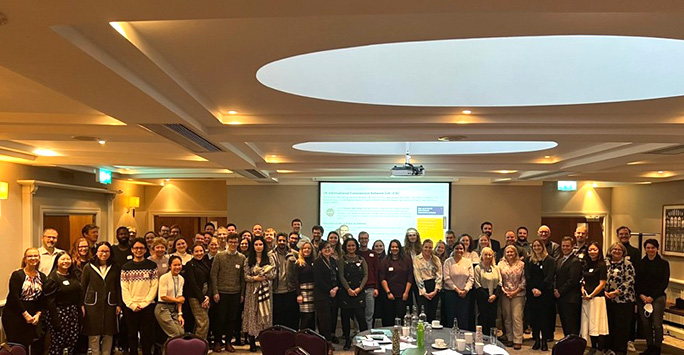UK International Coronavirus Network (UK-ICN)
The UK International Coronavirus Network (UK-ICN) is a four-year project (Oct 2021 – Oct 2025), funded by the Biotechnology and Biological Research Council (BBSRC) and the Department of Environment, Food and Rural Affairs (DEFRA).

Led by Professor Julian Hiscox (Institute of Infection, Veterinary and Ecological Sciences), the UK-ICN is hosted at the University of Liverpool and will provide and support global co-ordination for the delivery of collaborative scientific research and sustained long-term one health approach to better investigation of coronaviruses, improved surveillance, and social policies.
Visit our new UK International Coronavirus Network (UK-ICN) website
UK-ICN research themes
UK-ICN activities are led by our multidisciplinary partnership of the following co-directors spanning five distinct themes:
- One Health and Zoonoses – Professor James Wood, University of Cambridge
- Surveillance; Detection and Characterisation – Dr Sharon Brookes, The Animal and Plant Health Agency
- Countermeasures and Interventions – Dr Erica Bickerton and Dr Dalan Bailey, The Pirbright Institute
- Behaviour and Social Policy – Professor Lisa Boden, The University of Edinburgh
- SARS-CoV3 and the Future – Professor Paul Digard, The Roslin Institute.
UK-ICN aims to provide a community gateway to facilitate and co-ordinate interactions between members, particularly at the animal-human-environment interface. By providing a forum of exchange, we can foster cross-fertilisation of ideas and identify knowledge gaps to create research opportunities and build an evidence-based road map for One Health. These actions will disseminate and preserve knowledge to combat future emerging coronaviruses and ensure the longevity of coronavirus research after the impetus of SARS-CoV-2 has reduced.


